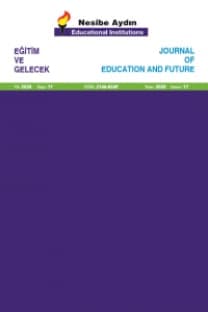Okul Öncesi Eğitimde Belgeleme
-
-
Documenting, preschool curriculum discourse,
___
- Carr, M., May, H., Podmore,V.N., Cubey,P., Hatherly,A., Macartney, B. (1999). Learning and teaching stories: Action research on evaluation in early childhood. Wellington: New Zealand Council for Educational Research and Ministry of Education.
- Carr, M., (2001). Assessment in EarlyChildhood Settings, London: SAGE Publications.
- Dahlberg, G., Moss, P. (2005). Ethics and Politics in Early Childhood Education. London: Routledge Falmer Damian.
- Ereaut,G., Whiting, R. (2008). What do we mean by ‘wellbeing’?And why might it matter?. London: Research Report DCSF-RW073.
- Giudici, C., Krechevsky, M., Rinaldi, C., (Eds.) (2001). Making learning visible: Children as individual and group learners. Reggio Emilia. Italy: Reggio Children.
- Katz, L., Chard, S. (1996).The Contribution of Documentation to the Quality of Early Childhood Education. ERIC Clearinghouse on Elementary and Early Childhood Education.
- Kinney, L., Wharton, P. (2008). An Encounter with Reggio Emilia:Children’s early learning made visible. London: Routledge.
- Krnjaja, Ž. (2009). Dokumentovanje sa decom u razvijanju kurikuluma (Documenting with children in curriculum development). Pedagogija, 3: 351-361.
- Krnjaja, Ž. (2010). Proces profesionalnog razvoja iz ekološke paradigme (Professional development process from the ecological paradigm). Andragoške studije, 2: 149-167.
- Krnjaja, Ž., Pavlović-Breneslović, D. (2012). Izveštaj o istraživanju mišljenja vaspitača o dokumentovanju (Report on the survey of preschool teachers’ opinions on documenting). Savez udruženja vaspitača Srbije.
- McKenna, E.D. (2003). Documenting Development and Pedagogy in the Swedish Preschool: The Portfolio as a Vehicle for Reflection, Learning, and Democracy. Göteborg: Cornell University.
- Pavlović Breneselović, D. (2010). Partnerstvo u obrazovanju. Andragoške studije, 2: 123- 138.
- Pavlović Breneselović, D., Krnjaja, Ž. (2011). Vaspitač kao istraživač sopstvene prakse Nastava i vaspitanje, 60 (2): 296-309.
- Pešić, M. Samoevaluacija praktičara (Practitioners self-evaluation). U: Pešić, M. i saradnici (2004). Pedagogija u akciji, (143-163). Beograd: IPA.
- Pramling Samuelsson, I., Sheridan, S. (2010). A turning-point or a backward slide: the challenge facing the Swedish preschool today. Early Years, 3: 219–227.
- Project Zero (2003). Making Teaching Visible: Documenting Individual and Group Learning as Professional Development. Cambridge, MA: Project Zero.
- Rinaldi, C. (2001). Documentation and assessment: What is the relationship? In: Giudici, C., Rinaldi, C., Krechevsky , M. (Eds) Making learning visible: Children as individual and group learners.(1-8) Reggio Emilia, Italy: Reggio Children.
- Seitz, H. 2006. The Plan: Building on Children's Interests, Journal Info, 61(2): 36-41.
- Taguchi, H.L. (2010). Going beyond the theory/practice divide in early childhood education:
- introducing an intra-active pedagogy, New York: Routledge.
- Vecchi, V. (2010). Art and Creativity in Reggio Emilia. London: Routledge.
- Okul Öncesi Eğitimde Belgeleme
- ISSN: 2146-8249
- Yayın Aralığı: 1
- Başlangıç: 2012
- Yayıncı: Nesibe Aydın Eğitim Kurumları
Üniversiteler ve Teknokentlerde Eğitim Alanında ARGE Projesi Yürüten Şirketler Arasındaki Sorunlar
Bestecilik Eğitimi Bakımından Ulvi Cemal Erkin'in Keman Konçertosunun Formal Analizi
Multimedya Ders Kitapları ve Öğretici Bölümlerin Analiz ve Değerlendirmesi
Okul Öncesi Eğitimde Belgeleme
Zivka KRNJAJA, Dragana Pavlovic BRENESELOVİC
Chopin’in G Bemol Majör İmpromptu’nun (Op. 51) Piyano Eğitimi Açısından Biçimsel ve Armonik Analizi
Uyum ve Hazırlık Çalışmalarının Matematik ve Hayat Bilgisi Kazanımları Açısından İncelenmesi
Emine ÖZDEMİR, Burcu Sezginsoy ŞEKER
Öğrenmenin Nöro Yapı Taşları; Okul Olgunluğunu Geliştirmek ve Öğrenme Güçlüğünü Aşmak
Teknoloji Bizim Arkadaşımız: Teknoloji Kullanarak İngilizce Öğrenme Stratejilerini Öğretmek
Anlamsal Wiki: Bilgisayar Mühendisliği Eğitiminde İşbirlikçi Öğrenme Ortamı İçin Bir Araç
